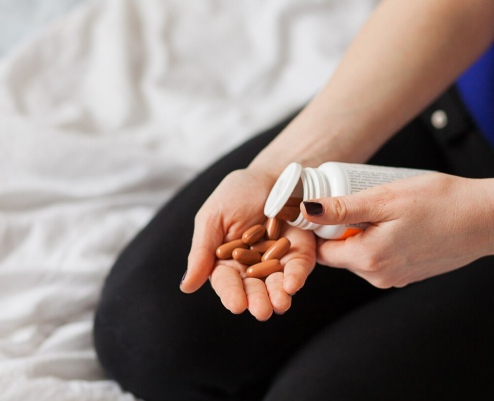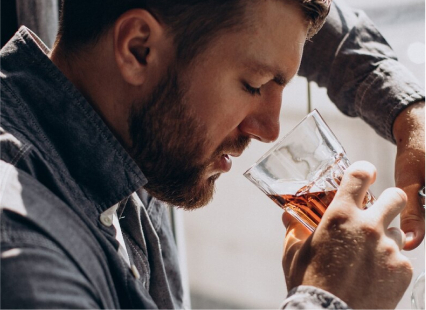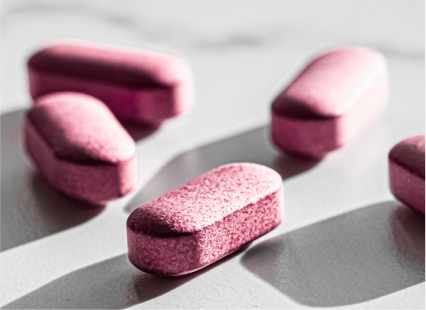Substance dependence is not an issue you can overcome yourself. Relapses, triggers, severe symptoms—these are not easy to handle. You need support and care from a team of professionals who know what you are going through and have helped people like you before.
At We Level Up Lake Worth FL, our inpatient treatment Florida center, you will get the help you need in a structured environment and you will be nowhere near distractions and triggers you would come across in your daily life. Our professional staff will do everything to keep you focused and motivated. With knowledge, experience, and commitment, we will give you the best chance for a lasting recovery and building a better life.

Skip to:
What Is Inpatient Rehab?
The treatment we provide at our inpatient rehab Florida center is the highest tier of care. It delivers 24-hour supervised nursing with physician availability. People at this level of care necessitate medication management and have a recent history of withdrawal management at a lower intensity level, typically characterized by previous attempts that were unsuccessful in completing withdrawal management and transitioning to ongoing addiction treatment. This setting is deemed appropriate for people grappling with subacute biomedical and severe emotional, behavioral, or cognitive challenges necessitating the expertise of inpatient healthcare professionals.
Our Approach
At our inpatient drug rehab Lake Worth FL center, we use an approach grounded in principles of dignity and respect for each person. We are committed to offering a comprehensive inpatient treatment program that encompasses all facets of recovery. At We Level Up Lake Worth, our program is tailor-made, integrative, and specialized to cater to the unique needs of our guests. Our primary focus is on addressing the requirements of individuals contending with co-occurring mental health issues.
Above all, the goal at our inpatient treatment Florida center is to assist you in recognizing and comprehending the detrimental repercussions of maladaptive behaviors associated with psychiatric disorders and chemical dependence.
Why Is It Important for Alcohol and Drug Addiction Recovery?
If you are diagnosed with alcohol or other drug addiction, inpatient therapy or residential treatment provides the highest comprehensive recovery services. Inpatient drug rehab facilities often provide integrated mental health services and medical detoxification.
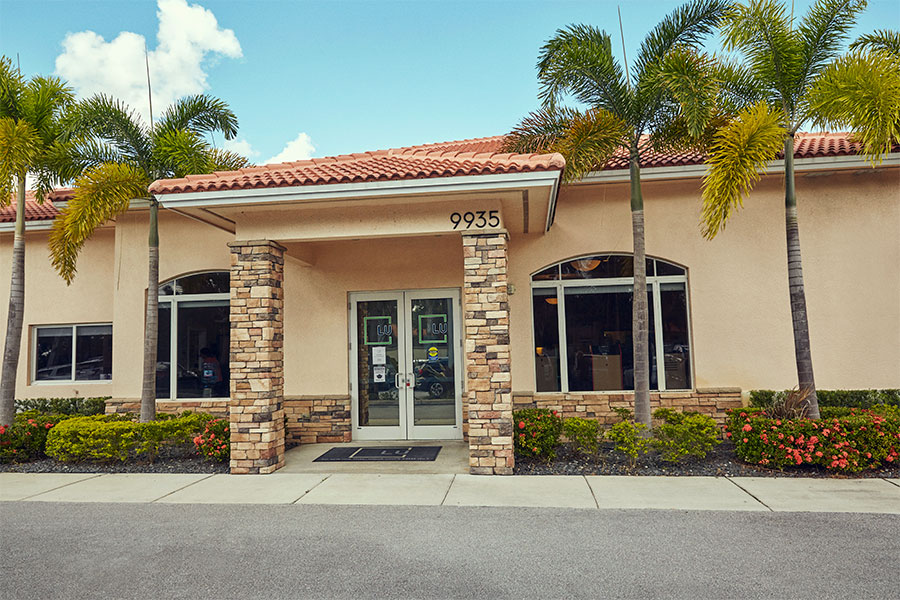
The treatment process commences with our clinicians thoroughly assessing your situation. To craft a personalized drug and alcohol recovery plan tailored to your needs, the treatment team evaluates your physical and mental health and your substance use history. With your consent, the rehab team may discuss with your family members and any existing professionals you may be collaborating with to address your needs and challenges.
Get Help. Get Better. Get Your Life Back.
Searching for Accredited Drug and Alcohol Rehab Centers Near You?
Even if you have failed previously and relapsed, or are in the middle of a difficult crisis, we stand ready to support you. Our trusted behavioral health specialists will not give up on you. When you feel ready or just want someone to speak to about therapy alternatives to change your life call us. Even if we cannot assist you, we will lead you to wherever you can get support. There is no obligation. Call our hotline today.
FREE 24/7 HotlineWho Will Take Care of You at Our Inpatient Rehab Florida Center?
Since addiction is a disease affecting your body, mind, and soul, our inpatient treatment Florida center multidisciplinary team will frequently provide you with a comprehensive treatment plan. Members of the certified residential treatment teams may include:
- Physicians
- Nurses
- Psychiatrists
- Psychologists
- Licensed therapists for marriage and families
- Certified addiction specialists
- Nutritionists
- Fitness and wellness professionals
- Coordinators for ongoing care
- Financial defenders
- Specialized case managers

How Do I Know If I Need Inpatient Rehab For Substance Abuse?
You will benefit from coming to our inpatient treatment Florida center if you:
- Are more susceptible to going through alcohol or drug withdrawal
- Have relapsed before
- Have tried less intensive drug or alcohol treatment but were unable to stay sober
Many people who enter inpatient rehab have a dual diagnosis. This means they grapple with co-occurring mental health issues. This necessitates concurrent treatment alongside their addiction, such as conditions like depression, anxiety, or post-traumatic stress disorder (PTSD).
Another factor to consider when deciding between inpatient and outpatient treatment clinics is the nature of your home environment. If you have a safe and supportive home setting where your recovery can be prioritized, outpatient therapy may be suitable. However, if such an environment is lacking, a residential treatment program with an integrated support system will likely offer the most beneficial option.
To make an informed decision regarding the most effective level and type of treatment for your specific needs, you should consult a qualified addiction specialist. They can help you assess all the various factors and determine the best course of action for your recovery journey.

Drug Overdoses Across the Country
Findings from the National Institutes of Health show us that:
- In 2022, drug overdoses resulted in the deaths of roughly 108,000 Americans.
- Since 2015, drug overdoses caused by unintentional poisoning have surpassed all other causes of injury-related death in the United States, killing more than 40,000 individuals annually.
- A drug overdose claimed the lives of 265 Americans on average per day.
In Florida alone, there were 7,551 drug overdose deaths in 2022. To prevent health complications that might lead to fatal consequences, the best thing you can do is look for professional help. Look for residential treatment centers in Florida today!

Why Choose We Level Up Lake Worth FL?
Choosing We Level Up Lake Worth FL means getting the support you need from a dedicated team and a community that cares. Let us help you take the first step toward a healthier, happier future.

Get Your Life Back
Find Hope & Recovery. Get Safe Comfortable Detox, Addiction Rehab & Dual Diagnosis High-Quality Care.
Hotline (855) 459-2880Personalized Treatment Plans
At We Level Up Lake Worth FL, we know that everyone’s experience with addiction is different. That’s why we create personalized treatment plans just for you. Our team works closely with you to find the best strategies for your recovery, making sure you get the care you need.
Experienced and Compassionate Staff
With over 15 years of combined experience, our staff knows how to help. We have hundreds of 5-star reviews across our centers, showing our dedication to quality care. Our compassionate team is here to support you every step of the way, offering expert guidance and understanding.
Holistic Approach to Recovery
At our inpatient rehab Florida center, we believe in treating the whole person at our inpatient alcohol rehab Florida center. We don’t treat just the addiction. Our holistic approach includes various therapies to address your physical, emotional, and mental health. This way, you get comprehensive care that helps you heal on all levels, making recovery more sustainable.
Comfortable and Supportive Environment
We Level Up Lake Worth FL offers a comfortable and supportive environment where you can feel safe and relaxed. Our facility includes peaceful rooms, spacious community areas, and opportunities for outdoor activities. We also provide catered meals and 24/7 snacks to keep you nourished and satisfied.
Proven Success in Long-Term Recovery
Our inpatient rehab Florida center has a track record of success in helping people achieve long-term recovery. With over 10,000 recovery success stories across our network, we have helped many individuals overcome addiction and rebuild their lives. Our structured programs and supportive environment give you the best chance at lasting recovery.
A person who joined our treatment before, says:
We Level Up has helped me in so many ways. The staff is amazing and I truly felt at home. It was an experience that changed my life and I now have the tools and knowledge to move forward to live a happy and peaceful life.
Heather
The tools you will gain here are:
- Coping strategies: Practical ways to manage stress and cravings, which will help you stay on track during difficult times.
- Relapse prevention techniques: You will be able to identify triggers and figure out how to avoid them.
- Emotional regulation: This will help you handle feelings without resorting to drinking or using drugs.
- Communication skills: You will express yourself clearly which will make your relationships healthier and stronger.
- Problem-solving skills: You will turn to substances less likely when you need to solve an issue.
- Healthy lifestyle habits: Better nutrition, fitness routines, and everything that means a healthier life.
- Knowledge of addiction: Staying sober will be easier when you are aware of your condition.
- Support network: Your peers and professionals will encourage you and support you in your endeavors to stay sober and live healthily.
What to Expect From Our Inpatient Treatment Florida Center
Our inpatient rehab Florida facility is designed to make you feel comfortable and supported throughout your stay. You will get to rest in secure, peaceful rooms designed for relaxation and privacy. Also, you will enjoy spacious areas for socializing and activities.
You will have a daily schedule. The way you spend your time will be planned out. This will give you structure, which will help you stay on track and focus.
You will receive treatment nonstop while staying at the facility, including:
- Detox
- Individual and group therapy
- Family therapy sessions
- Medical consultations
- Health and fitness activities
- Nutritional support
- Educational workshops

Detox
When you stop using drugs and alcohol you are addicted to, you will experience withdrawal symptoms. The symptoms during alcohol and drug detox in Florida may include insomnia, irritability, mood swings, depression, anxiety, physical discomfort such as aches and pains, intense cravings, fatigue, hallucinations, and nausea. Additionally, you may experience fluctuations in body temperature, with symptoms like feeling hot and cold, having goosebumps, or having a runny nose similar to a cold.
At We Level Up Lake Worth FL, our medical experts will closely monitor and assist you in alleviating withdrawal symptoms during the detox phase of inpatient treatment. We embrace a holistic approach to recovery, addressing the full spectrum of an individual’s physical, mental, and emotional well-being. Our compassionate team is dedicated to tending to medical needs, mental health, comfort, and uncertainty throughout detox. When necessary, we can provide over-the-counter medications and, in some cases, short-term prescriptions like Suboxone, Methadone, Naltrexone, Acamprosate, and Disulfiram. These measures aim to alleviate severe side effects, symptoms, and cravings associated with detox.
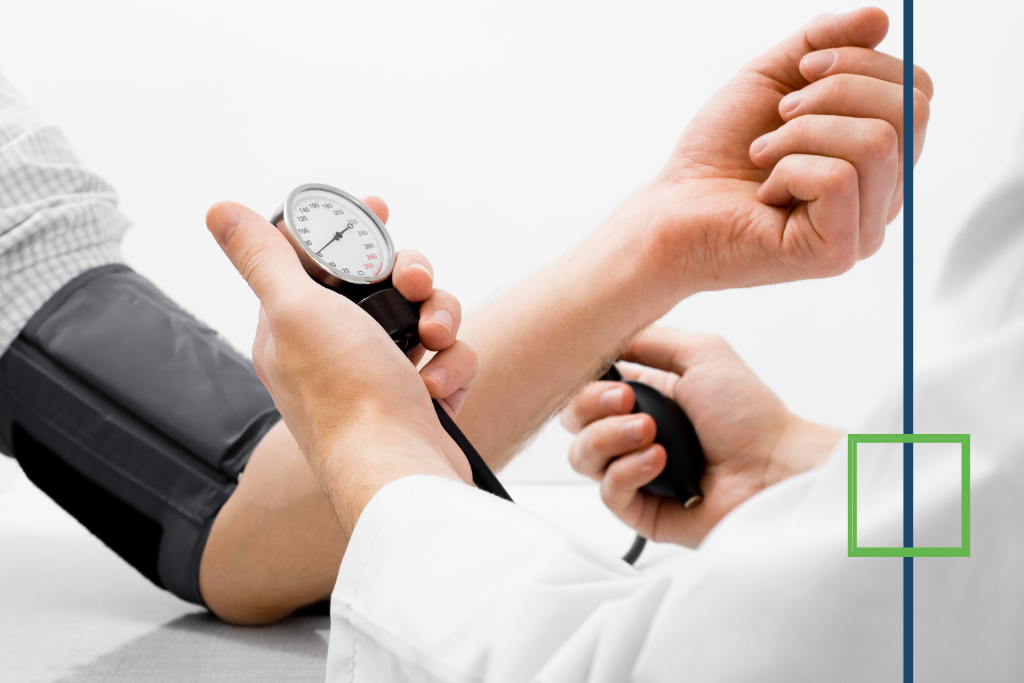
At our drug and alcohol detox Florida center, you will receive continuous medical supervision until our healthcare professionals determine you are stable enough to engage in treatment programming and other activities.
Individual and Group Therapy
You will work with a therapist one-on-one at our inpatient treatment Florida center. You will contemplate, reflect, and think, which will help you explore your feelings, address personal issues, and develop coping strategies. One of the main advantages of individual therapy is the fact that you will get personal attention. Your treatment will customized, just for you, which will make you and your therapist more focused. Some of the therapies we use are:
- Cognitive behavioral therapy (CBT): Helps you understand and change negative thought patterns.
- Dialectical behavior therapy (DBT): Focuses on managing emotions and improving relationships.
On the other hand, in group sessions at our inpatient rehab Florida center, you will share experiences and learn from others. You will be in a supportive environment, which means you will be safe and free to say what troubles you and what you need help with you. Hearing what your peers are going through and realizing you are not the only going through this is one of the top benefits. You will be a part of a community that has the same goal—to get better.
Some other therapies we use are:
- Acceptance commitment therapy
- Twelve-step facilitation
- Contingency management/motivational incentives
- Solution-focused brief therapy/solution-focused therapy
- Dialectical behavioral therapy
- Psychoeducational groups
- Interpersonal therapy
- Motivational interviewing
- Medication-assisted therapies
- Motivational enhancement therapy
- Mindfulness-based cognitive therapy

Family Therapy Sessions
These sessions at our inpatient treatment Florida center make your family a part of the recovery process. Family therapy will rebuild trust among the family members and deal with any issues that might come along as a result of addiction issues and recovery. It will teach you how to talk to each other openly and honestly and improve your relationships. In the end, you will get better support at home.
Medical Consultations
We need to make sure you are in good health condition. Therefore, at our inpatient rehab Florida center, you have regular check-ins with medical professionals. They monitor you, and check how you are doing, and they do this at all times. This way they are ready to address issues, if any.
Health and Fitness Activities
You know that physical activities lead to better physical health. At our center, staying active is an important part of recovery. You will get to do yoga, join fitness classes, and be a part of exercises that aim to improve your well-being. Besides, you will be less stressed and in a better mood.
Nutritional Support
Good, healthy food will make you feel your best. At our inpatient rehab Florida center, you will get to eat balanced meals, packed with valuable nutrition. You will feel satisfied and be healthier. Also, you will be more energetic, which are all the things you need for a successful recovery.
Educational Workshops
You need to know what you are going through. When you get to understand your condition better, you will be more aware of what you are fighting against and what things will help you do it. Educational workshops at our inpatient alcohol rehab Florida center are how you will learn about addiction and mental health, which will then enable you to turn your knowledge to recovery strategies. You will develop new skills and make better decisions when you know everything related to your situation.
FAQs About Inpatient Rehab
What Is 30 day inpatient rehab?
The shortest stay possible is often a 30-day recovery program. It may seem short, but these programs are quite helpful. These programs at our inpatient drug rehab Florida center offer you structure and assistance as they go through detox and start to learn how to live soberly.
How much does inpatient rehab cost?
The cost of inpatient rehab programs can vary depending on several factors, including the choice of treatment facility, the recommended level of clinical care, and the duration of treatment. Whether you can use insurance benefits to offset the cost or if you have to pay out of pocket also influences the total expense. It’s essential to have a detailed discussion with your insurance provider to understand the specific coverage details in your case, as insurance policies and benefits can vary significantly.
What to bring to inpatient rehab?
Residential treatment centers Florida offers to its residents have extremely severe rules about what you can bring to therapy. A suggested packing list and a list of prohibited items are typically provided by the facilities.
How to get someone into inpatient rehab?
It can be extremely hard to witness a loved one suffer from drug or alcohol addiction. You detest seeing their life destroyed by drug misuse. And it hurts even more if they refuse to get help because they are unable to comprehend the harmful effects of their addiction. So, how can you convince someone to come to our inpatient rehab Florida center if they don’t want to? You must take particular actions to make the procedure of assisting your loved one in a recovery program easier and more efficient.
Can you leave inpatient rehab whenever you want?
Even if therapy is ordered by a court, no one can force you into rehab if you’re an adult. You are free to leave whenever you choose, but before you do, consider why you want to stop receiving therapy. Think about the possible outcomes and how leaving our inpatient drug rehab Florida center early might affect your life.

How to Start
When you decide you want to take control of your life and get better, the rest is easy. You will be at our inpatient rehab and detox center in Lake Worth in as little as 24 hours after your call.
Step 1: Reach out. Call us at (561) 257-5914 and you will be connected with an admissions coordinator. They’ll spend about 15-30 minutes talking with you to understand your medical, mental health, and substance use history. This helps us create a treatment plan that’s right for you.
Step 2: We check your insurance. We will gather information to see if your health insurance is accepted. We work with most major providers, so there’s a good chance your treatment will be covered.
Step 3: We explore other payment options. If your insurance isn’t accepted or if you prefer other payment methods, our inpatient rehab Florida center team will help you find the best alternative. We want to make sure you can access the care you need without financial stress. We work with Blue Cross Blue Shield rehab coverage in Florida, and we are also one of the rehabs in Florida that accept Cigna.
Step 4: We assign a treatment consultant to you. After sorting out the details, you’ll be assigned a dedicated treatment consultant. They’ll coordinate everything with the facility and, after that, the treatment staff to make sure your experience is smooth and personalized.
Step 5: We arrange transportation if you are coming out of town. We want to make your arrival at our inpatient drug rehab Lake Worth FL facility as easy and stress-free as possible.
Step 6: You start your recovery. When you arrive, our inpatient treatment Florida center staff will welcome you and complete the final admission steps. From there, you can start focusing on your recovery with the support of our experienced team. Contact us today!
A Sober Life is Your Goal and Inpatient Treatment is How You Get There
At We Level Up Lake Worth FL, we have a team that will give you expert care, proven therapies, and knowledge that will lead you to a different future. All we need from you is your commitment. When we combine these two, nothing can stop you from achieving your goal of living a sober life. Furthermore, when you get sober, nothing will keep you away from realizing your full potential and living a meaningful life. Come to our inpatient treatment Florida center and get a chance to change everything.
Start a New Life
Begin with a free call to an addiction & behavioral health treatment advisor. Learn more about our dual-diagnosis programs. The We Level Up treatment center network delivers recovery programs that vary by each treatment facility. Call to learn more.
- Personalized Care
- Caring Accountable Staff
- World-class Amenities
- Licensed & Accredited
- Renowned w/ 100s 5-Star Reviews
We’ll Call You
Sources:
Centers for Disease Control and Prevention (2022). Drug Overdose Mortality by State . [online] Center for Disease Control and Prevention. Available at: https://www.cdc.gov/nchs/pressroom/sosmap/drug_poisoning_mortality/drug_poisoning.htm.
National Institutes of Health (NIH) (2023). National Institutes of Health (NIH). [online] National Institutes of Health (NIH). Available at: https://www.nih.gov/.
